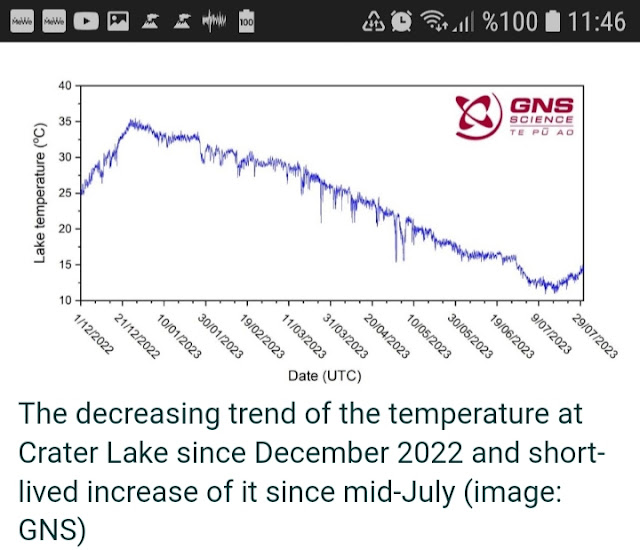Ruapehu Developments
The Crater Lake (Te Wai ā-moe) temperature continues at a declining trend.
Since December 2022, the temperature has dropped from 32 °C to 11 °C by mid-July. Since then, it has risen by 4 °C and is currently at 15 °C.During the cooling phase, the heat flow into the lake declined from around 400 MW to less than 50 MW. Now that heating has started it has increased to around 100 MW.
This might experience due to short-lived input of melted snow and heavy rainfall into the lake. However, short-term variations did not affect the long-term heating or cooling trends.
Given the ongoing weak seismic activity, both volcanic tremor and earthquakes show low values in amplitudes and numbers, respectively. Passive emissions of gas and steam continue to vent at low-to-moderate levels over the past three months.
The recent water sample analysis, taken on 15 June, indicate no significant changes compared to other chemistry samples. Key chemical indicators suggest the temperature of the gas input into the lake was still decreasing at the time of sampling, which is consistent with the still decreasing lake temperature at that time. The water and gas composition data are consistent with chemical interactions between the fluids and gases, and volcanic rocks in the hydrothermal system beneath the lake at low levels of volcanic activity.
Thus, The Volcanic Alert Level remains at 1 and the Aviation Colour Code at Green.
Source: GNS Science volcano activity update 31 July 2023



Yorumlar
Yorum Gönder